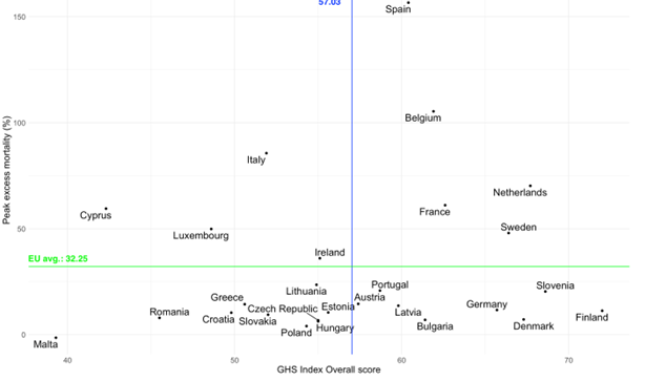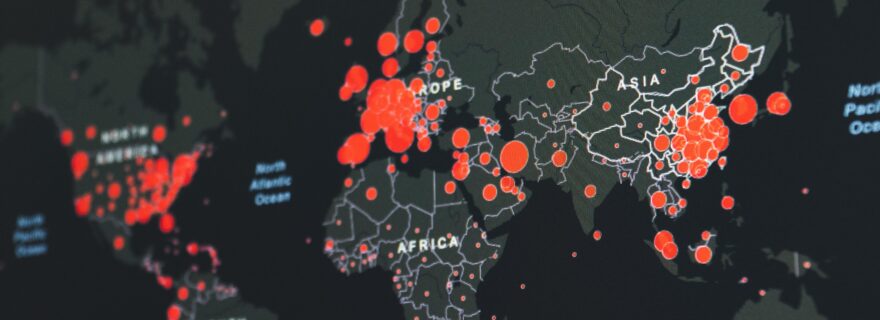The Preparedness-Response Paradox of the COVID-19 pandemic: Towards robust preparedness for crises to come
The COVID-19 pandemic has been a wake-up call: it opened our eyes to the crucial importance of pandemic preparedness.
The COVID-19 pandemic: A wake-up call
A stream of calls and initiatives to improve pandemic preparedness has followed the outbreak of the COVID-19 pandemic. The World Health Organization is developing a “historic global accord” on pandemic prevention, preparedness and response. The World Bank just released a new pandemic fund. And the action does not stop at the global level. Countries, too, are upping their pandemic preparedness game. In the Netherlands, for instance, the government made pandemic preparedness a priority in its coalition agreement and freed up a yearly budget of 300 million euros to invest in pandemic preparedness.
The COVID-19 pandemic has been a wake-up call: it opened our eyes to the crucial importance of pandemic preparedness.
The Preparedness-Response Paradox of the COVID-19 pandemic
Better crisis preparedness is believed to prompt a better crisis response. Why else would governments invest effort, money and expertise in crisis preparation? However, the COVID-19 pandemic brought to the fore a rather curious paradox. Countries that ranked as having high pandemic preparedness failed to prevent COVID-19 deaths, whereas countries that dangled at the bottom of pandemic preparedness rankings managed surprisingly well. This “Preparedness-Response Paradox” reveals just how limited our understanding of how to prepare effectively for crises is.


In the scatterplot above, we zoom in on the first five months after the pandemic broke out in Europe in January 2020. It is in this acute phase of the crisis that countries should have benefitted most from their pre-COVID-19 pandemic preparation. The scatterplot juxtaposes how prepared EU countries were for pandemics pre-COVID-19 – using the renowned Global Health Security Index as preparedness indicator – with the extent to which they managed to prevent COVID-19 deaths going by percentage peak excess mortality, the indicator that best captures the total health impact of a pandemic.
The blue and green lines drawn across the plot show the EU averages on these indicators and create four quadrants that reveal the Preparedness-Response Paradox of the COVID-19 pandemic. If better preparedness indeed prompts a better response, countries with an above-average preparedness level (those to the right of the blue line) should report relatively few COVID-19 deaths (below the green line), and vice versa for countries with a below-average preparedness level. In other words, in the lower-right and the upper-left quadrants we find the pandemic’s expected successes and expected failures, respectively. However, not all countries fall in either of those two quadrants. Well-prepared countries such as Belgium and the Netherlands report surprisingly many COVID-19 deaths (the surprising failures in the upper-right quadrant), whereas countries like Czech Republic and Estonia did surprisingly well (the surprising successes in the lower-left quadrant).
Clearly, the relationship between preparedness and response is not at all as straightforward as it may seem.
A research agenda: Towards robust preparedness for crises to come
So, what does this mean and what do we do with it?
First of all, does this paradox not primarily signify what is wrong with this specific ranking? If scores on a crisis preparedness ranking seem unrelated to crisis response outcomes, the ranking simply was not an accurate measure of preparedness, right? That explanation is a rather too easy way out. If anything, such rankings teach us something about how we thought to be prepared for pandemics to come – assumptions the COVID-19 pandemic might have just turned upside down.
The main issue is that we have to go by assumptions. Our understanding of how crisis preparedness influences crisis response is simply too limited. Although preparedness and response have been studied extensively in isolation, much about the relationship between the two remains unclear, something which the outbreak of the COVID-19 pandemic has made painfully clear. This insight is particularly troubling in light of the ongoing turbulence governments face and the crises that come creeping their way, with the consequences of the climate crisis being top of the list.
The Preparedness-Response Paradox of the COVID-19 pandemic demonstrates that acquiring a better understanding of the relationship between crisis preparedness and crisis response should be top-priority on the research agenda if we want to make our investments in improving pandemic preparedness worthwhile and prepare more robustly for crises to come.
Solving the Preparedness-Response Paradox of the COVID-19 pandemic to better understand how crisis preparedness influences crisis response is the main ambition of my PhD research project. If you are interested in the progress I make on this research or want to get in touch to talk about crisis preparedness and response, contact me via e-mail (a.m.van.der.wilt@fgga.leidenuniv.nl) or find me on Twitter or LinkedIn.


